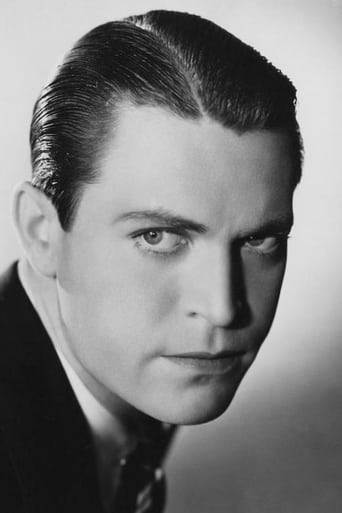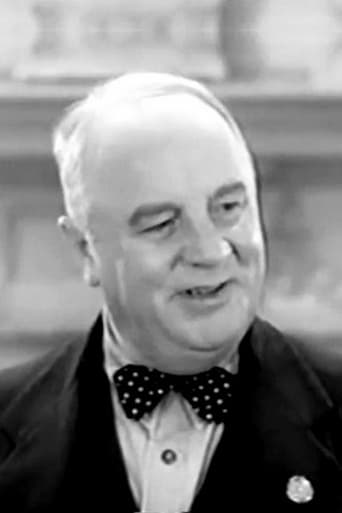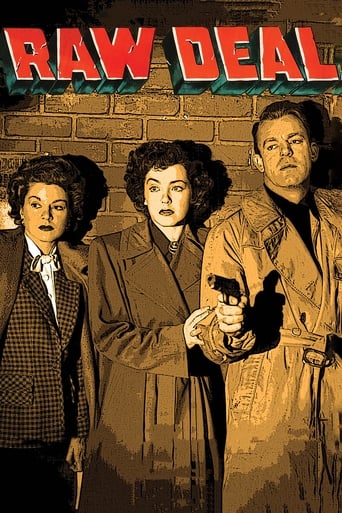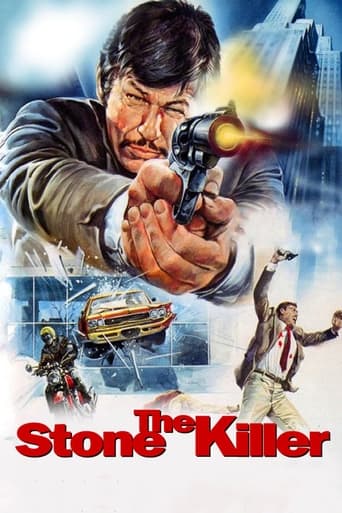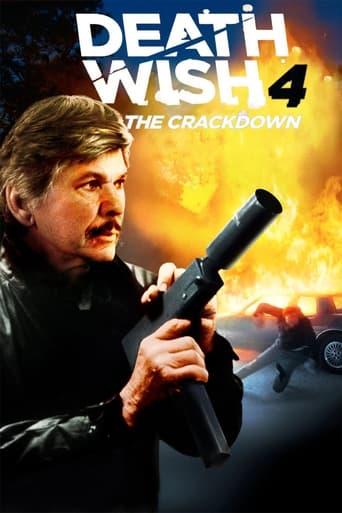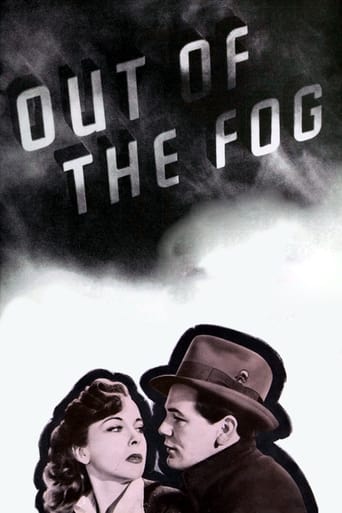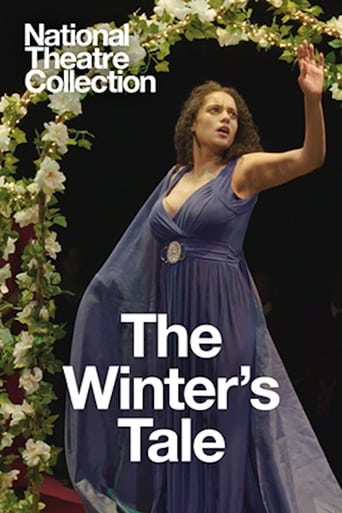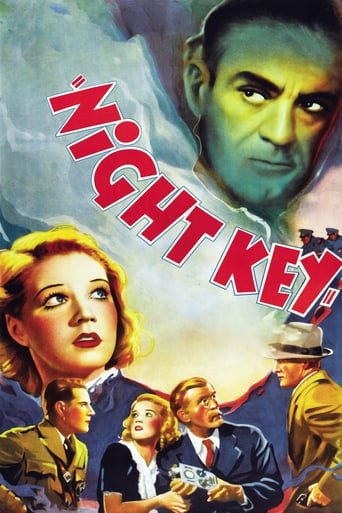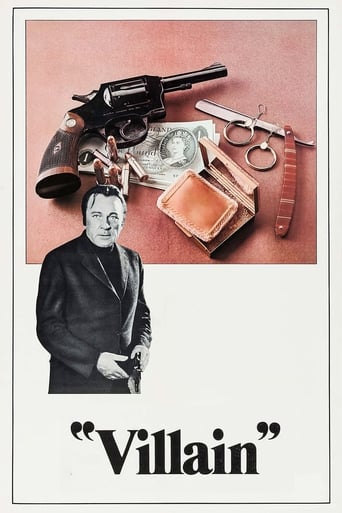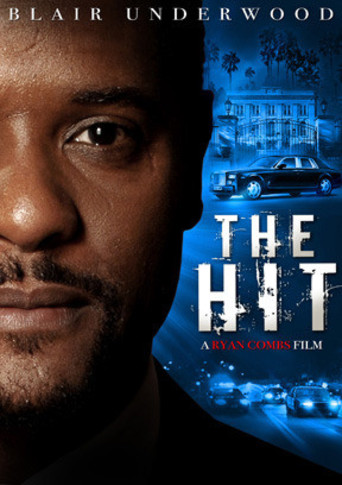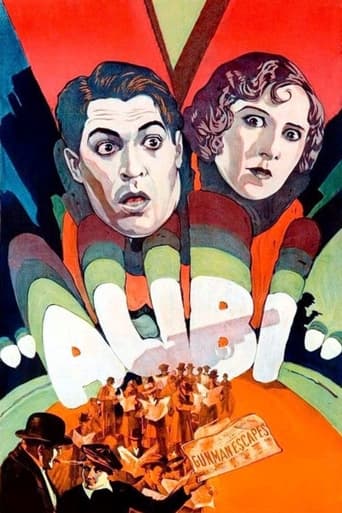
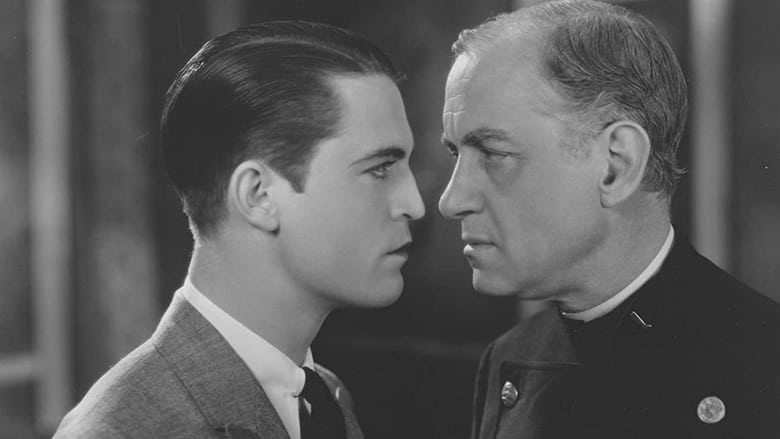
Alibi (1929)
Chick Williams, a prohibition gangster, rejoins his mob soon after being released from prison. When a policeman is murdered during a robbery, he falls under suspicion. The gangster took Joan, a policeman's daughter, to the theater, sneaked out during the intermission to commit the crime, then used her to support his alibi. The detective squad employs its most sophisticated and barbaric techniques, including planting an undercover agent in the gang, to bring him to justice.
Watch Trailer
Cast
Similar titles
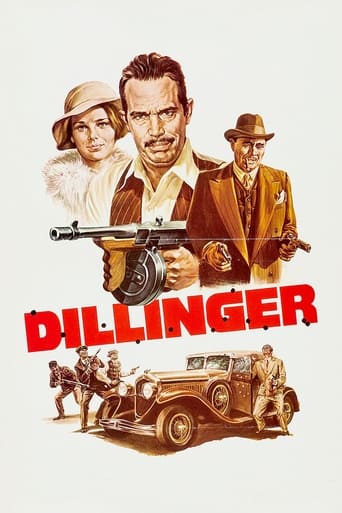
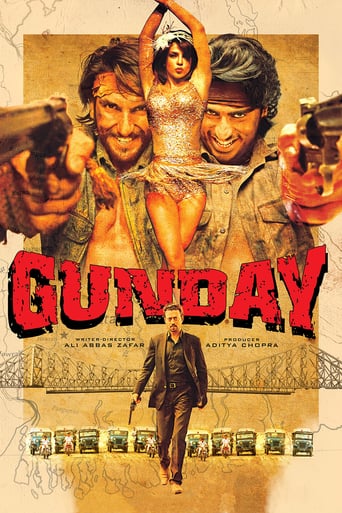
Reviews
A waste of 90 minutes of my life
The performances transcend the film's tropes, grounding it in characters that feel more complete than this subgenre often produces.
All of these films share one commonality, that being a kind of emotional center that humanizes a cast of monsters.
All of these films share one commonality, that being a kind of emotional center that humanizes a cast of monsters.
The story here is interesting enough and on its own ensures that no one will feel disappointed at having watched this. Chick Weaver is a gangster just released from prison who hooks up with a "copper's daughter." Unfortunately, he can't go straight and gets involved with a warehouse robbery during which he kills a cop. The rest of the movie essentially deals with his attempts to frame an alibi for himself and with the efforts of the police to find the cop-killer. There are a few points at which the story gets a bit confusing, but it holds your interest well enough as you follow the various characters. What's really most interesting about this, though, is its status as a very early "talkie."In that sense, I almost saw this serving as a proverbial "missing link" between the silent era and the sound era. There are parts of this movie which are very much like a silent movie - with no dialogue or sound effects other than a musical background. And yet, most of the movie has dialogue, although strangely the accompanying sound effects (ie, the sound of doors slamming, etc.) often seem to be missing. At times, this movie even has, in both sound and picture quality, a very later (say 1950's) feel to it. This diversity of "style" (for lack of a better word) would seem to me to be an example of director Roland West experimenting with this new way of movie-making. The weirdest aspect of this would probably be an extended scene right at the beginning of the movie, where police officers do nothing but bang their billy clubs against a wall for no apparent purpose - except, perhaps, to demonstrate to the audience that this has sound?This is an enjoyable enough movie, and an interesting look at this transitional era of movie-making. 7/10
Hitchcock's "Blackmail" and Lubitsch's "The Love Parade", are probably the very best of the early sound films made in 1929, but this one is close behind. I'm rating this film 9/10 when ranked with other early sound entries from 1929 -1934. Although the dialogue still has some of that halting quality that is common in early talkies, it doesn't cause the film to plod along. Instead, it moves along at a good pace and keeps you engaged. The actors have a pretty natural quality in their performance, Chester Morris in particular. He's the one actor you're likely to recognize, since he had a pretty good career in the 30's and 40's playing romantic leads first and then in a crime drama series later on.The film starts out with Chick Williams (Chester Morris) being released from prison, supposedly after being framed by the police. He's dating the daughter of a hard-boiled detective, and from the way the detective and his subordinates handle things - not to mention his rough treatment of his daughter - at first you might believe Chick is a wronged guy. Shortly after Chick's release there is a robbery that goes bad in which a police officer is killed. Chick is suspect number one, except he has an alibi - the hard-boiled detective's daughter, and roughly a hundred other people who saw him at the theatre at the time of the robbery.There are lots of little interesting tricks and turns in this movie, not to mention the interesting use of sound and the mounting of the camera on the front of the car so that as the police and the criminals speed around in the dark, you see what they see. Look at any other typically claustrophobic 1929 film, and you'll appreciate this even more. I also enjoyed how this film used musical numbers - not to intrude on the plot in a silly way as so many 1929 films did - but to add to the atmosphere of the club that Chick and his gang hang out at.Finally there is Chester Morris' acting. He was nominated for a Best Actor Oscar for his performance, and he certainly deserved it. He transitioned from playing the smooth and possibly wronged man, to vicious criminal, to trembling coward quite believably. Not for another two years, when Edward G. Robinson and James Cagney came along, do we get quite such a powerful performance from an actor playing a gangster.The one bad thing I'll say about the Kino DVD is that the sound has quite a bit of static in it. It's not terrible, but there are times when you need to really turn up the volume to understand what's being said.
I know it is de rigor to inform readers if a comment contains spoilers but I want to issue an even sterner warning that this comment will treat the plot of ALIBI (1929) as mere fodder to be referred to in passing regardless of the consequences for those who haven't seen the film and who might want to maintain some sort of "suspense". For me the most interesting aspect of ALIBI is the fact that at this point (1929) the film industries of the US, Britain, Germany and France were equally capable of producing this type of film. The urban crime drama may have been pioneered by the French feuillade whose roots go back to written literature but it was perfected by Lang and the German School. Film Expressionism cried out for the geometrical shapes and dark shadows of the urban setting and the speed of what was just becoming known as 'modern life'. After all it was only in 1920 that 50% of the American population lived in cities even though the Jeffersonian ideal of the rural ideal was to linger in both film and literature until WW2.While expressionist lighting was used to tell the quintessential urban tale, the gangster story, in Germany, it was imitated around the world. The most adept imitator was Alfred Hitchcock, a one time art director who made his first film in Germany. It is important when discussing ALIBI to compare it to Hitchcock's contemporary effort BLACKMAIL, which was also shot in silent and sound versions. In fact ALIBI comes off as being vastly inferior. This is because ALIBI's auteur, Roland West is merely artistic while Hitchcock is an Artist.The disparity is most evident in the talking portions of ALIBI. There are problems with the sound which look like a compendium of SINGING IN THE RAIN gags. Sound levels vary and people are grouped, presumably to be in close proximity to the microphones. There is even a song in which the vocalist is seen badly lip synching to what, in the days before mechanical playback, must have been the actual singer off-camera. Hitchcock had a similar problem in that his female lead had a heavy Slavic accent and had to lip sync her entire role, which he pulled off far more effectively.The overwhelmingly biggest problem in the talking portions of ALIBI is the acting. Screen acting in talking films just hadn't been done and in this film everyone seems to be counting to three before talking. Its very off putting. Regis Toomy plays an undercover cop pretending to be a drunken stock broker referred to as "The Boy Wonder". He plays it like a grinning idiot with a silly broad smile on his face which seems to have been carved on in imitation of THE MAN WHO LAUGHED. No thought to the idea that he might appear sober and progressively get drunker and drunker, he's just a full time fool who couldn't have put over his act to a room full of ten year olds. Chester Morris, who was actually nominated for an Oscar for his performance, changes his demeanor as the role, NOT the character, demands. Released from prison, after a very effective silent montage, he assumes the leadership of a gang on no authority at all. His showy scene at the end where he becomes a blubbering coward reeks more of propaganda than drama. Re: All gangsters are yellow. When the undercover cop is discovered he is murdered somewhat inexplicably as knowing they were discovered the gang would have been better advised to get the hell out and not square accounts which would inevitably lead to the electric chair. However the necessities of propaganda required the villains kick the dog to confirm their sinister evil. Toomy has a super hammy drawn out death scene in which he actually wonders out loud why its getting dark. The academy might have thought this scenery eating was just the ticket in talking screen acting but apparently the public hated it and actors had to adapt to the new medium or else new actors untainted by the conventions of the stage brought in. Again, Hitchcock's characters are human beings, dualistic and inconsistent, their reactions ambiguous even to themselves. In ALIBI characters are set in stone and lack even free will. They act at the behest of a rigid morality tale whose points are hammered home. The police acquire information by literally pointing a gun at a suspects head not because they are tarred with the same brutal brush as the gangsters but to point out that this is the only way to treat 'them".The settings are over the top as well. Early geometrical deco, adapted from cubist designs and the neo-Mayan decorations of Frank Lloyd Wright (the curvilinear 'streamlined" deco was to come later) overwhelm the backgrounds. The silent scenes are very well shot. West knows the dramatic power of the dynamically unbalanced frame. Some shots use Caligari like angles and black and white shadows. There is a high shot of a car coming around a corner and stopping (done twice) which looks like it could have been lifted entire from Lang. (Also pointing out that as well as their film industries, automobile design hadn't yet diverged either.) Crowds pass by nighttime city streets as in Murnau. There are successful attempts at process shots and less successful attempts to use sound 'creatively'. Again, West's attempts pale beside Hitchcock's famous 'knife' sequence.As can be found in Roland West's IMDb biography, when he died he reputedly made a deathbed confession to Chester Morris that he murdered his mistress, Thelma Todd, whose death ended his Hollywood career. Morris and Todd co-starred in West' last film, CORSAIR (1931), another gangster melodrama. Apparently, unlike Hitchcock or Lang, West became involved in the gangster milieu rather than the cinematic arts.
For its time, Alibi was probably groundbreaking with a crime world never truly seen before. That's probably why it was nominated for Best Picture in 1929. Today, people just see it as one of those creaky gangster movies from the early days of sound and pass it up thinking that it won't hold their attention one bit. I'm here to prove those people wrong.For one thing, the story is what usually makes a movie for me. A film has to have a good story to get me to see it. Well, if you like any type of crime related movies, that's all you need to know. Even if you aren't a fan of crime dramas, this film will interest you with the way it captures the human spirit and the way it can deteriorate very quickly in times of stress.Obviously that last bit can only be performed by great actors and actresses with natural talent. That's what you get with this film. Chester Morris deserved the Oscar he was nominated for, even if you just see his final scene you'll give it to him for his shocking portrayal of a rotten gangster.I think that it's Regis Toomey, a forgotten star, who really shines in this film though. His performance as a drunk with something to hide is really quite remarkable. If they had Supporting categories back then, he'd have been a shoe-in.I hope I've convinced you enough to check out Alibi because it's actually a really good film. I recommend it if you're looking for a good crime drama that will hold your attention, which shouldn't be hard since it's not a very long movie. Enjoy it, if you get the chance to see it.
